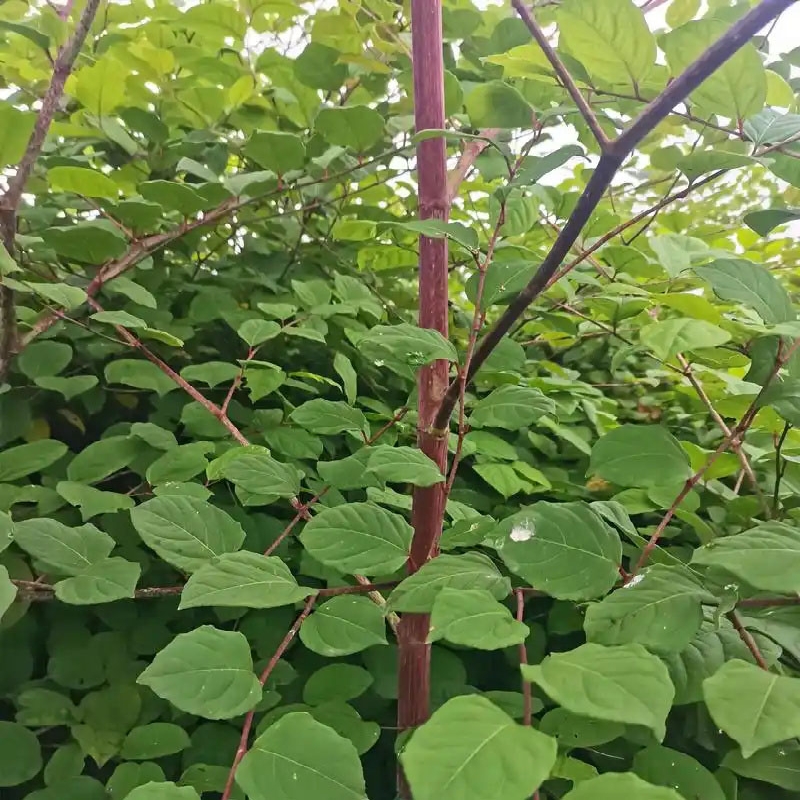Colloidal silver made from ghanera extract has the potential of anticancer and antibacterial
-
Last Update: 2019-06-13
-
Source: Internet
-
Author: User
Search more information of high quality chemicals, good prices and reliable suppliers, visit
www.echemi.com
Ghanera (Nothapodytes nimmoniana) is a small flowering tree found in India It is a rectangular fruit, purple red when mature, with only a single seed Ghanera is known as the rich source of camptothecin (CPT) CPT is a topoisomerase inhibitor, which can treat ovarian cancer and small lung cancer Recently, researchers from bharathidasan University in India have found another application of ghanera: its fruit extract can be used as an end capper in the biosynthesis of nanoparticles, with strong anti-cancer and antibacterial activities Why nanoparticles have been studied for a long time due to their potential in drug delivery Researchers prefer to use them because they can be designed for specific purposes; for example, they can target only sick cells to allow direct treatment When nanoparticles are used as carriers, they also reduce damage to healthy cells in the body because they can be more specific They can also be used for medical diagnosis because they can detect diseases early On the other hand, metal nanoparticles are good stabilizers in the synthesis of nanoparticles due to their electrical, optical, chemical and mechanical properties In the study, published in the Journal of food science and human health, the researchers synthesized silver nanoparticles (AGNPS) and used liquid extracts from mature ghanera fruits as terminators Cappers are usually used in the synthesis of colloids to prevent excessive growth and control the structural characteristics of nanoparticles The AgNPs were characterized by UV analysis and X-ray diffraction They used scanning electron microscopy to confirm that AgNPs had spherical shapes and different particle sizes AgNPs made from the fruit extract of ghanera can resist bacteria and kill cancer cells Researchers compared the fruit extract of ghanera with AgNPs according to the content of phenols, tannins and flavonoids As they expected, the content of each compound in the fruit extract was higher than that of AgNPs It also showed better antioxidant activity, indicating that the fruits of ghanera are rich in phytochemicals that can resist oxidative stress In terms of antimicrobial activity, AgNPs have been shown to be more effective against Bacillus subtilis, Pseudomonas aeruginosa, Klebsiella pneumoniae, Staphylococcus aureus and Escherichia coli Bacillus subtilis causes gastrointestinal infections in humans, while Pseudomonas aeruginosa, Klebsiella pneumoniae and Staphylococcus aureus cause respiratory infections E coli is a part of normal intestinal flora, but some strains may cause urinary tract infection, abdominal spasm, anemia, and even renal failure The researchers found that AgNPs with smaller particle size were more effective against bacteria due to their larger surface area They explained that a large surface area means more space to interact with bacteria They also suggested that AgNPs kill bacteria by attaching to cell surfaces and destroying their permeability and respiration AgNPs may also have the ability to penetrate bacterial cells When the researchers tested the cytotoxicity of ghanera extract and AgNPs on HeLa cells, they found that AgNPs could inhibit the proliferation of cancer cell lines They observed that the cell viability decreased with the increase of AgNPs concentration, indicating that AgNPs has a strong anti-cancer potential (related: Rhubarb can destroy cancer cells )Based on their findings, the researchers concluded that AgNPs synthesized from the fruit extract of ghanera has become a promising candidate for biomedical applications due to its effective antimicrobial and anticancer activities.
This article is an English version of an article which is originally in the Chinese language on echemi.com and is provided for information purposes only.
This website makes no representation or warranty of any kind, either expressed or implied, as to the accuracy, completeness ownership or reliability of
the article or any translations thereof. If you have any concerns or complaints relating to the article, please send an email, providing a detailed
description of the concern or complaint, to
service@echemi.com. A staff member will contact you within 5 working days. Once verified, infringing content
will be removed immediately.






